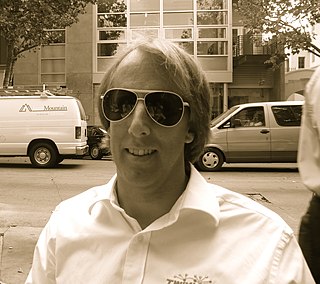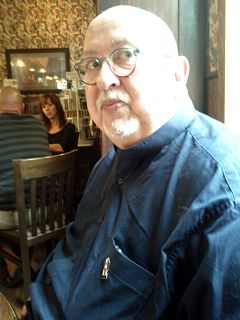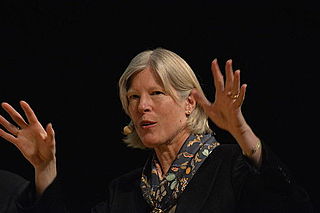A Quote by Eula Biss
The risk of getting Hep B from a blood transfusion is a tiny number, but it's a bigger number than the risk of side effects from the vaccine.
Related Quotes
Look, if I were running the FBI, you know, I probably would want to have backdoors as well, so I'm sympathetic to the director's view. But there is risk if you put that backdoor in. There's no question you enhance the risk, number one. Number two, there are the privacy implications that are of concern to parties.
In terms of getting people to experiment more and take more risk, there are at least three things that immediately come to my mind. Number one, of course, is role-modeling it yourself. Number two is when people take intelligent, smart risks and yet it doesn't work out, not shooting them. And number three, being honest with yourself. If the culture you have is radically different from an experiment and take-risk culture, then you have a big change you going to have to make—and no little gimmicks are going to do it for you.
If all other risk factors are normal, and you exercise moderately, your risk of having high CRP is one in 2000, .. A person who is a little overweight, with blood fats and cholesterol a little elevated, maybe with a little bit of high blood pressure -- we didn't used to think that having several of these little risk factors were a big deal. But it is. These little risk factors add up in a way that is worse for you than one big risk factor.
In terms of getting people to experiment more and take more risk, there are at least three things that immediately come to my mind. Number one, of course, is role-modeling it yourself. Number two is, when people take intelligent, smart risks and yet it doesn't work out, not shooting them. And number three, being honest with yourself.
The risk of developing carcinoma of the lung increases steadily as the amount smoked increases. If the risk among non-smokers is taken as unity and the resulting ratios in the three age groups in which a large number of patients were interviewed (ages 45 to 74) are averaged, the relative risks become 6, 19, 26, 49, and 65 when the number of cigarettes smoked a day are 3, 10, 20, 35, and, say, 60-that is, the mid-points of each smoking group. In other words, on the admittedly speculative assumptions we have made, the risk seems to vary in approximately simple proportion with the amount smoked.
To laugh is to risk appearing a fool. To weep is to risk appearing sentimental. To reach out to another is to risk involvement. To expose feelings is to risk exposing your true self. To place your ideas and dreams before a crowd is to risk their loss. To love is to risk not being loved in return. To hope is to risk pain. To try is to risk failure. But risks must be taken, because the greatest hazard in life is to risk nothing.
Unlike return, however, risk is no more quantifiable at the end of an investment that it was at its beginning. Risk simply cannot be described by a single number. Intuitively we understand that risk varies from investment to investment: a government bond is not as risky as the stock of a high-technology company. But investments do not provide information about their risks the way food packages provide nutritional data.
You don't need a marriage license to live with someone, to have the security of a home, to rear any number of children, to have years of companionship; it's not illegal, but the moment you want to screw somebody, you have to get a license from the state to use your genital organs -or run the risk of being charged with any number of crimes carrying sentences up to and including death. So sex is really the only sensible reason for getting married.





































